The saga of what we consume grows more thrilling day by day!
From Patanjali's misleading ads to Bournvita's sugar overdose and Protein Powder's unexpected pesticide topping, not to mention Nestle's sugar extravaganza. And now, the crown jewel—Everest masala with a sprinkling of pesticides?
So, with every brand ditching us, what's left on the menu? Air?
Well, hold that thought—considering the pollutants, even the air might not be safe.
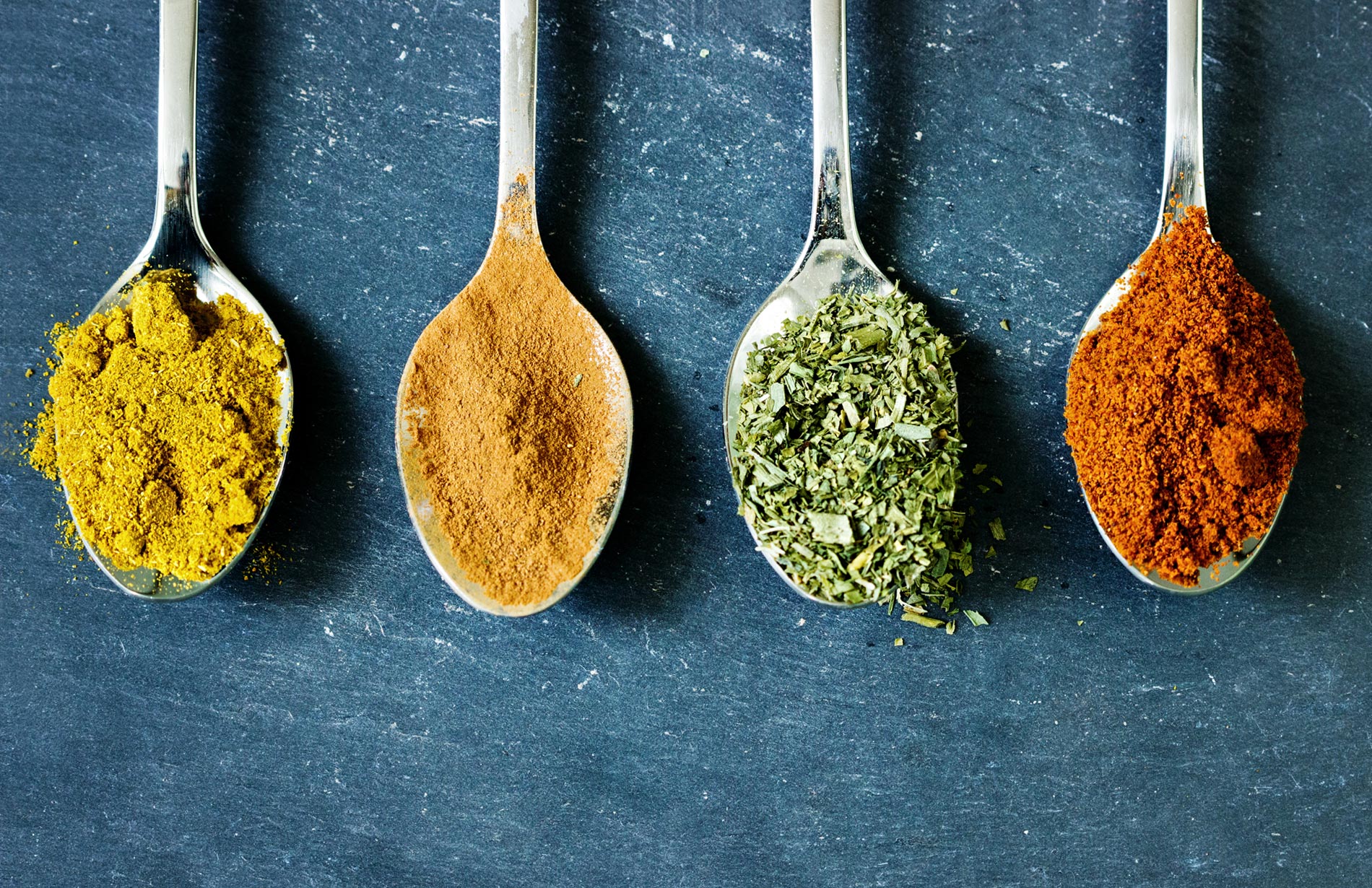
Indian spices are celebrated for their rich flavors but, in a recent twist, a popular spice blend has landed in hot water in Singapore. The Everest Fish Curry Masala, imported from India, has been yanked off shelves due to alarming levels of ethylene oxide—a pesticide unfit for human consumption.

Singapore throws out Everest fish curry masala
Singapore is recalling Everest Fish Curry Masala following a notification from the Hong Kong Centre for Food Safety indicating elevated levels of ethylene oxide. The Singapore Food Agency (SFA) stated that the Centre for Food Safety in Hong Kong has alerted them about the recall due to ethylene oxide levels surpassing permissible limits in this product from India.
The importer, Sp Muthiah and Sons Pte. Ltd, has been instructed by the SFA to initiate a comprehensive recall of the affected Everest Fish Curry Masala. Consumers who have purchased this product are advised by regulatory authorities not to consume it.
The SFA emphasized that individuals who have consumed the affected product and have health concerns should seek medical advice promptly. Consumers are encouraged to reach out to their respective points of purchase for further inquiries, according to the SFA's statement.
Everest, a well-known brand in Indian households for its assortment of spice mixes essential for Indian cuisine, has not yet issued any statement regarding this recall.
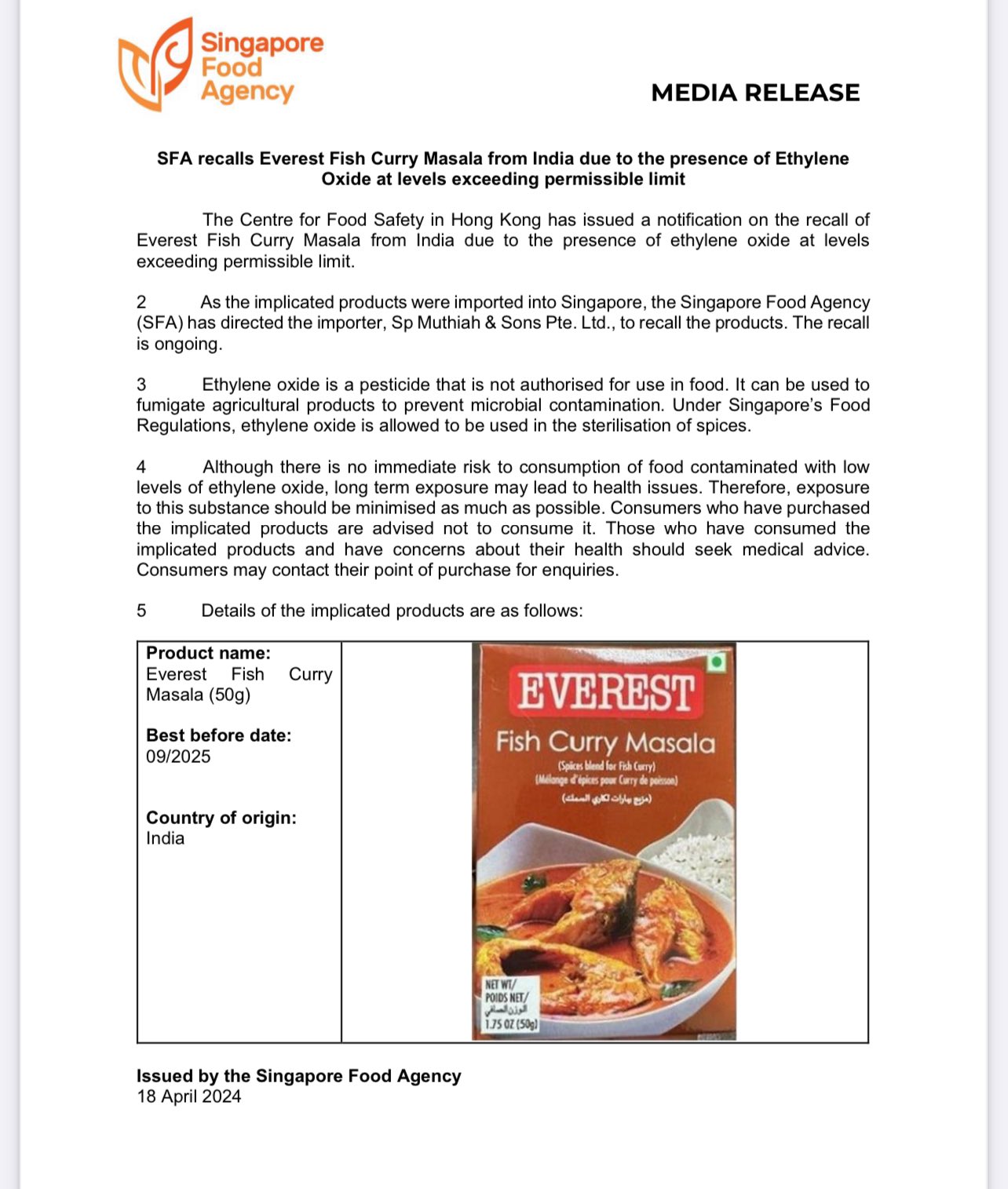
Why Ethylene Oxide is Prohibited in Singapore?
Singapore prohibits the use of ethylene oxide in spices due to serious health risks. Although ethylene oxide is permitted for agricultural use to prevent microbial contamination, its use for spice sterilization is not allowed under Singapore's Food Regulations.
The Singapore Food Agency (SFA) emphasizes that while ethylene oxide is not approved for direct food use, it can be used in agriculture to prevent microbial contamination. However, it should not be used to sterilize spices according to Singapore's regulations.
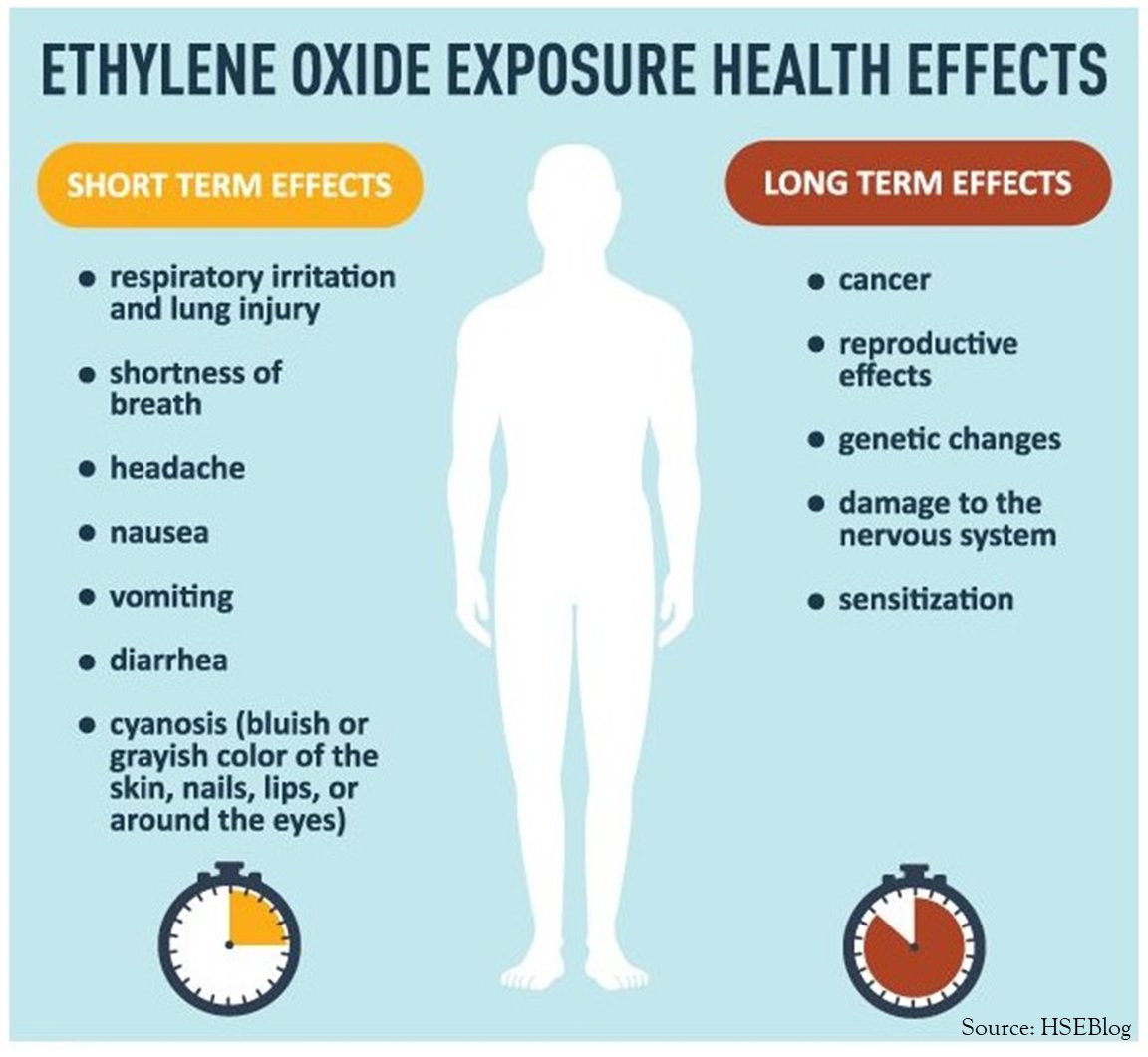
Consuming food with low levels of ethylene oxide does not pose an immediate risk, but the SFA advises minimizing exposure to this substance due to potential health complications. Prolonged exposure to ethylene oxide can cause irritation to the eyes, skin, nose, throat, and lungs, and may affect the brain, nervous system, and reproductive health, according to the US Environmental Protection Agency. Ethylene oxide is classified by the SFA as an unauthorized pesticide for food use, but it is permitted for spice sterilization.
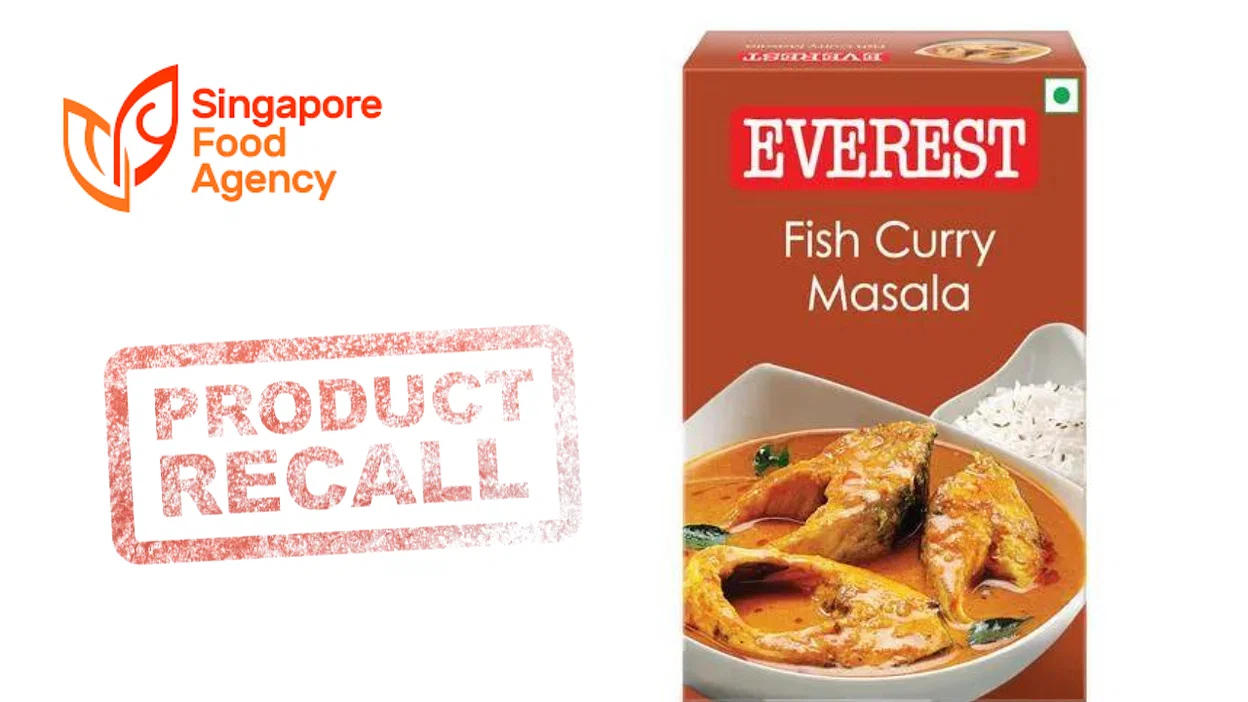
Similar incidents of spice mishap in other countries
Similar incidents have occurred in various countries. For instance, in July of last year, an importer withdrew three Indian spice products from distribution in eleven U.S. states due to a positive salmonella test result. The recall was initiated by Amin Trading Agency LLC. The affected spices, Everest brand garam masala, and sambhar masala, were manufactured by Everest Food Products Private Limited in Gujarat.
Additionally, a subsidiary of Nestle, Maggi, also had to recall its line of masala spices. Fortunately, no illnesses linked to these products were reported. According to the Food and Drug Administration (FDA) recall notification, Everest had not intended for these products to be sold in the American market; instead, Amin Trading sourced them directly from Indian retail stores. Similarly, Maggi's product was only meant for the Indian market and came in a six-gram box, whereas Everest's varieties were packaged in 100-gram boxes.

In another incident, the FDA recalled three lots of MDH's Sambhar masala in the U.S. in September 2019 due to salmonella contamination. Sambhar is a staple in southern Indian households, consumed almost daily. The contaminated MDH product was distributed in northern California by House Of Spices (India), produced by R Pure Agro Specialities, a company with directors who are also affiliated with MDH.
Salmonella bacteria can cause serious infections, particularly in vulnerable populations such as children, the elderly, and individuals with weakened immune systems. Most cases resolve within a week without treatment, as per the FDA.
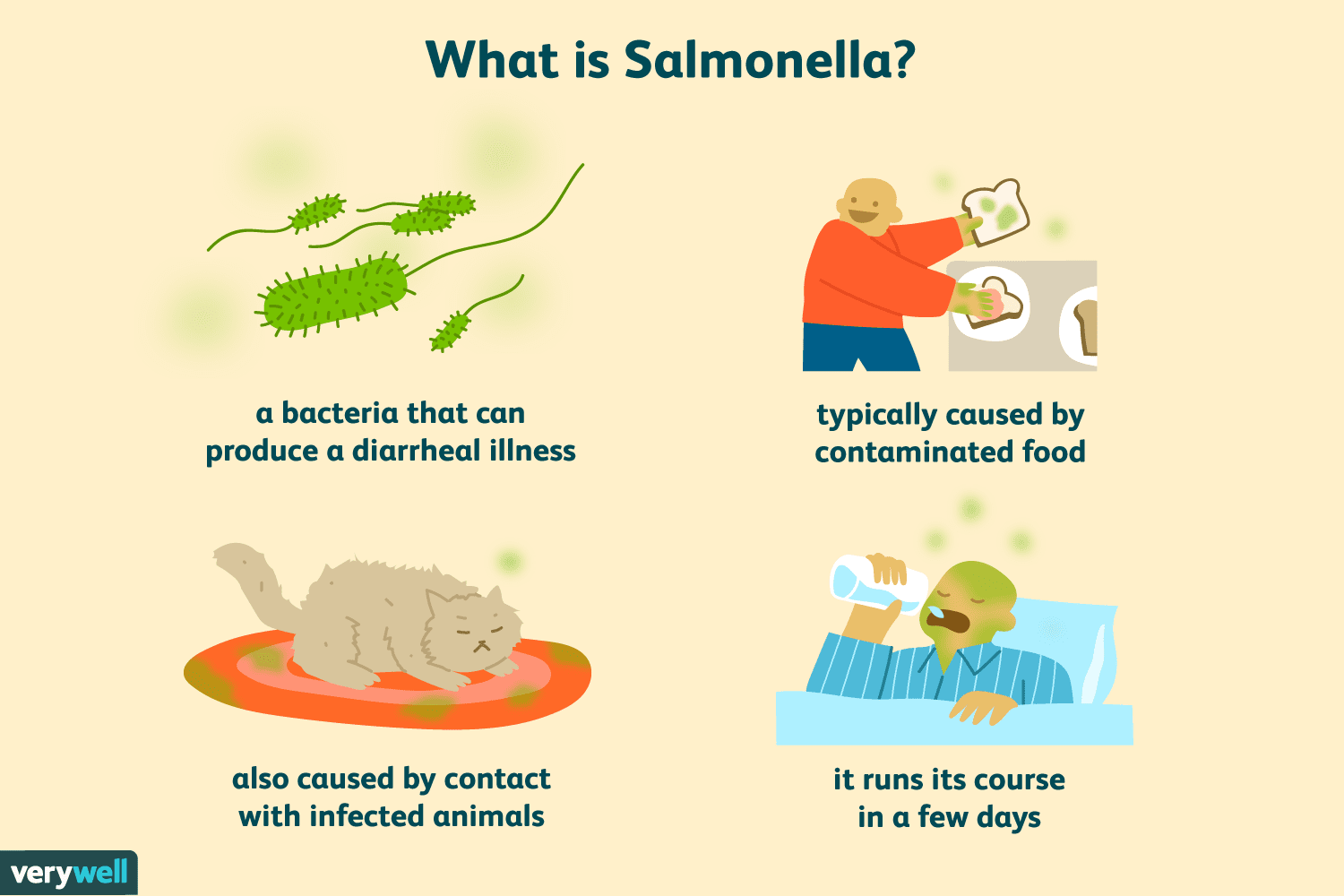
In a separate incident, authorities in Singapore ordered a recall of Everest Fish Curry Masala after it was found to exceed permissible pesticide limits. The Singapore Food Agency (SFA) issued this recall due to the presence of ethylene oxide in the Fish Curry Masala.
The Singapore Food Agency (SFA) reported that Everest Fish Curry Masala was imported from India in 50-gram packets with a best-before date of September 2025. Everest Spices, headquartered in Mumbai, is a major food processing company in India with a global presence in more than eight countries, as stated on its website.

MDH Sambar Masala thrown out in the US in 2019
This incident isn't the first instance where popular Indian spice brands have fallen short in quality abroad. In 2019, the US Food and Drug Administration (USFDA) mandated the recall of three batches of MDH Sambhar Masala due to contamination by Salmonella bacteria. Consumption of such tainted food can lead to salmonellosis, characterized by symptoms like diarrhea, abdominal cramps, and fever.
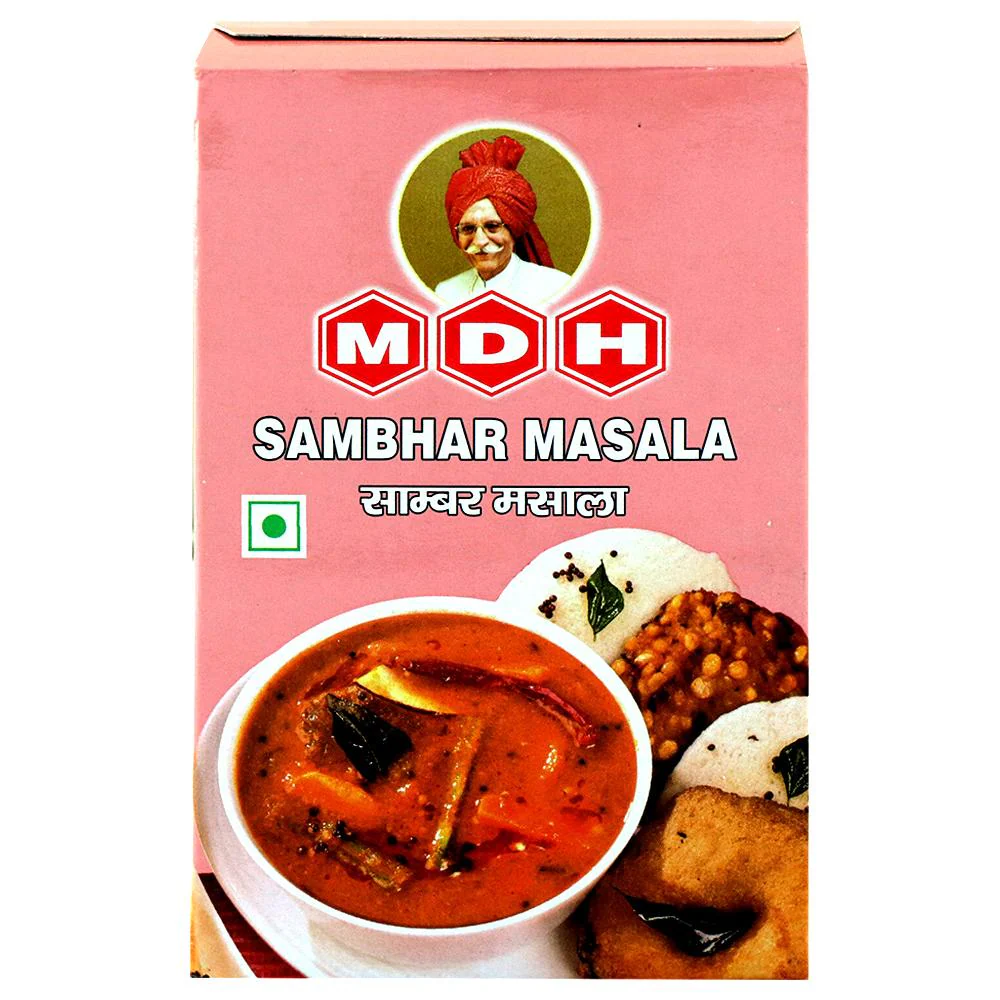
Consumers Advised To Seek Medical Assistance
To minimize risks, the SFA has advised consumers are advised not to consume affected products and to seek medical advice if concerned about their health after consumption. Emphasis has been placed on minimizing exposure to the contaminated items. Additionally, consumers can contact their point of purchase for details regarding the affected products.
Everest Spices has yet to publish a statement in response to the recall notification. However, the India-based spice firm is expected to undergo scrutiny due to the existence of dangerous substances in its goods.

What's the Solution? Keep Eating Toxins or Take Matters into Your Own Hands?
- Urban Farming: Grow Your Own, Literally
Ever considered starting a kitchen garden? It's the ultimate rebellion against dodgy spice mixes.
Why not dabble in urban farming? A bit of self-sufficiency might just spice up your life. Your garden, your rules.
Winter Tip: Grow coriander, fenugreek, spinach, and other leafy greens.
Summer Tip: Try your hand at mint, tomatoes, chilies, and more.
- Stay Informed (It's Your Health, After All)
Knowledge is power, especially when it comes to what you consume. Stay in the loop with trustworthy sources—consumer watchdogs, legit studies, those regulatory heroes keeping an eye on product safety.
- Label Reading
Don't just glance—scrutinize those labels. Seek out certifications like they're golden tickets, ensuring your food doesn't come with a side of unwanted chemicals.
- Speak Up
Social media, emails, customer service—make noise where it counts. Brands may turn a deaf ear to toxins, but they can't ignore a vocal consumer base demanding safer products.

In the meantime, until Everest and its ilk get their act together, take charge of your plate and the planet. Growing your own food isn't just a trend—it's a survival tactic for a healthier you and a happier Earth.
Stay Aware, Grow Strong
With inputs from agencies
Image Source: Multiple agencies
© Copyright 2024. All Rights Reserved Powered by Vygr Media.






















